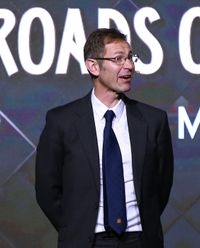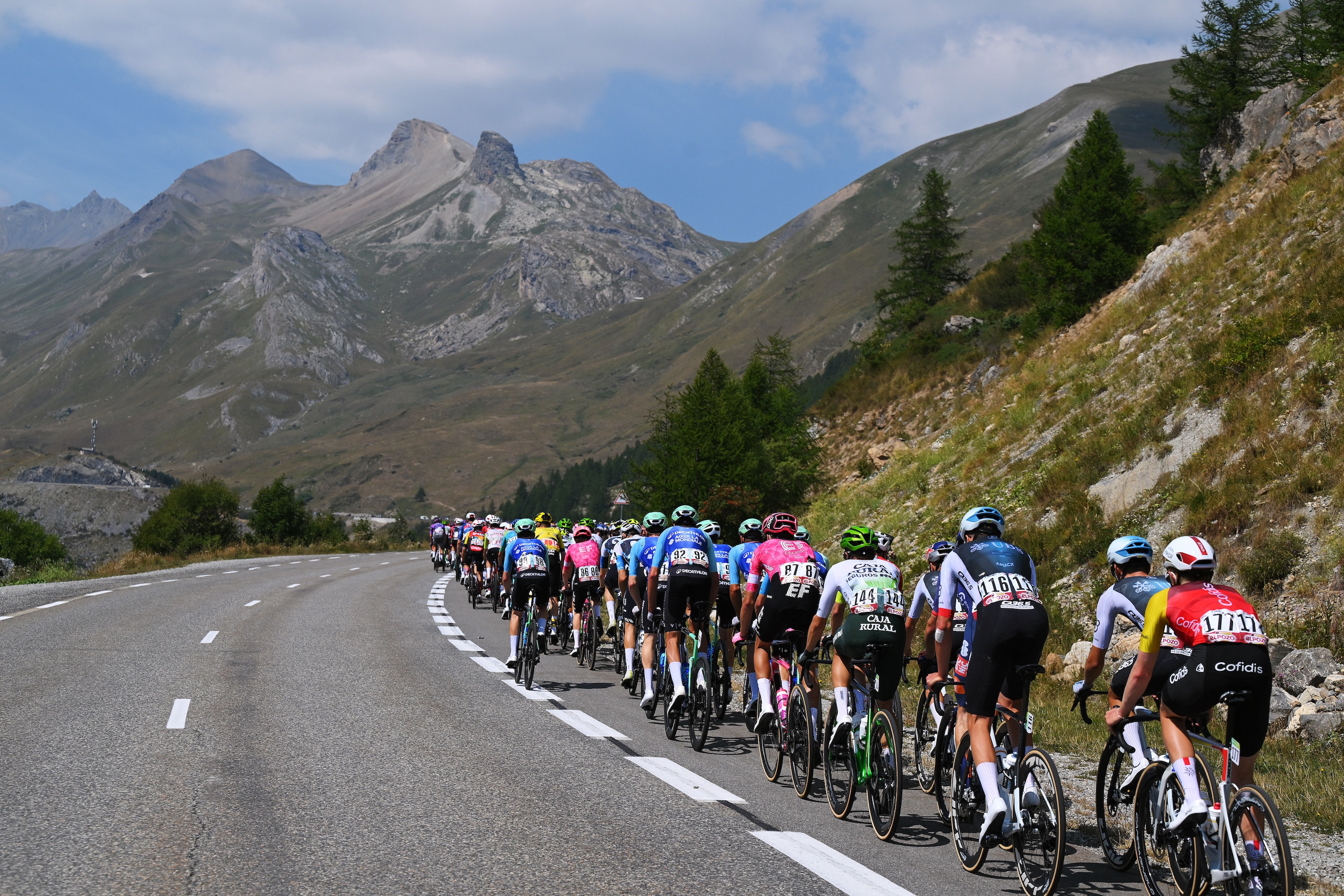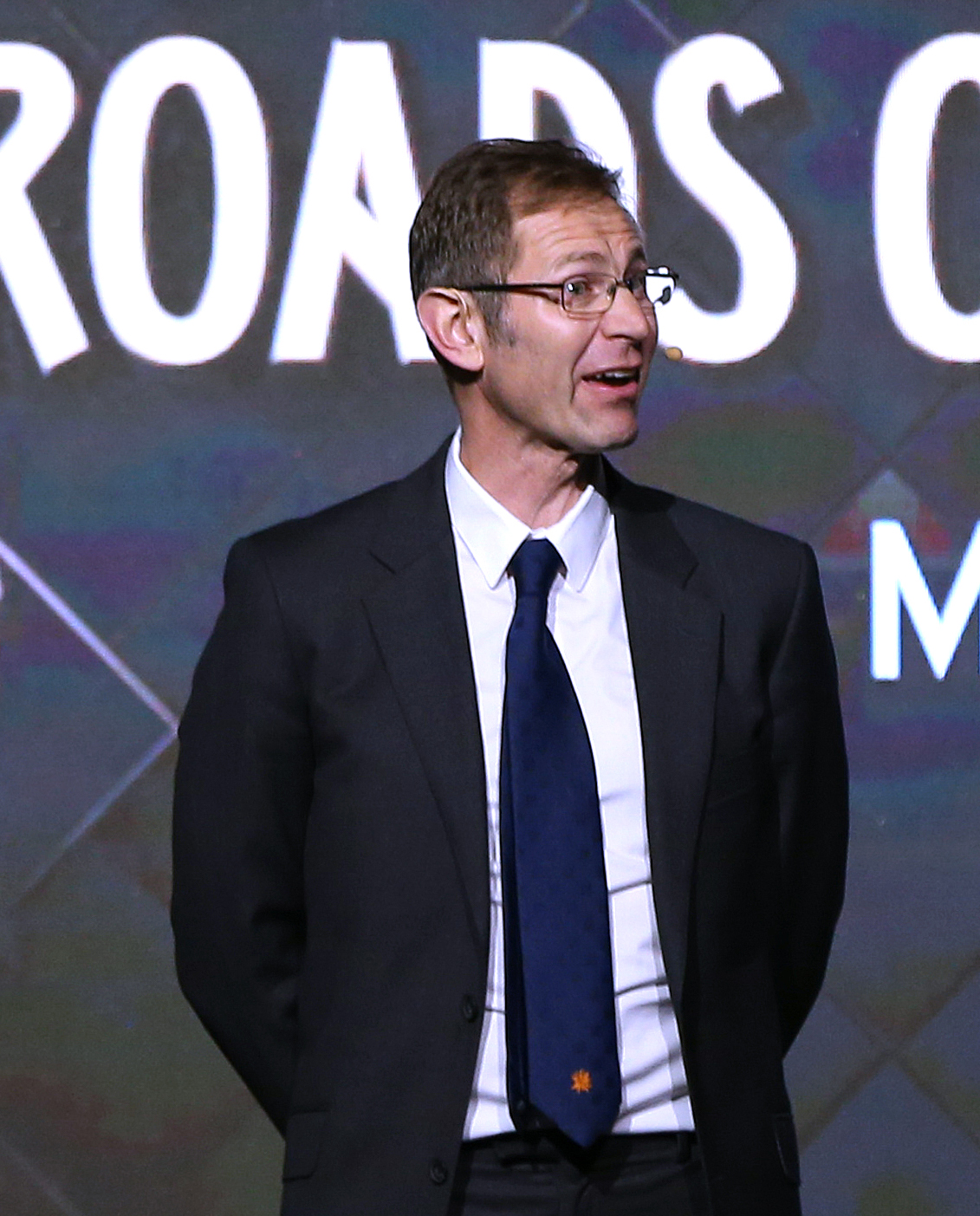'Climate change is here now, disrupting sport and threatening lives': TV's Matt Rendell on sportswashing at Vuelta a España, and why mid-race flights should be banned
Former ITV broadcaster speaks out on cycling's dubious relationship with the environment and climate change


The latest race content, interviews, features, reviews and expert buying guides, direct to your inbox!
You are now subscribed
Your newsletter sign-up was successful
Guest columnist Matt Rendell, former ITV Tour de France broadcaster, pulls no punches in opinion piece, written in collaboration with the Cool Down Network.
The riders competing in the Vuelta a España finished stage four in the French Alps on Tuesday, and needed a charter flight to Figueres in Spain to get to the start of stage five on Wednesday. In just five days, the race has travelled around 700km already.
Mid-race flights should surely be banned. They are environmentally short-sighted. Climate change is all around us. Extreme heat is no longer an abstract warning for the future: it is here now, disrupting sport and threatening lives. Just 10 days ago, the Vuelta’s primary host was experiencing unprecedented wildfires at the cost of lives and livelihoods.
Few sports experience our warming world with such immediacy. The riders feel the extremes of climate on their skin. What should be a celebration of speed and endurance is unfolding in a landscape transformed by climate breakdown.

Matt Rendell is an award winning cycling writer, reporter, journalist, studio pundit and commentator, best known for being part of ITV's Tour de France coverage
For climate conscious sportsmen and women, the invasion of fossil fuel and high polluting sponsors makes cycling a doubly hostile environment. The sport’s friendly culture and undoubted environmental credentials unfortunately suit it to the purposes of businesses seeking to sportswash their image. The association with cycling allows oil companies and other high polluters to achieve something that is otherwise impossible: to make their highly damaging products look green.
While many of cycling’s sponsors are honourable and environmentally attentive, it is a sad truth that, in order to be able to pursue their dreams, talented young athletes with the rare sets of gifts required to become professional cyclists often have little choice but to sell themselves to problematic sponsors. It is ironic. After all, a subsection of the very sponsors who finance the sport are actively involved in destroying the atmosphere, contributing to climate change which is very quickly making the future of cycling profoundly uncertain.
The scientific consensus is that new oil and gas projects will push humanity past safe climate thresholds. However, far from winding down production, the Vuelta’s main sponsor, Eni - the Italian oil and gas giant - is expanding its fossil fuel operations, just like other fossil fuel-based companies. Eni Plenitude branding at the Vuelta allows the company to present a progressive, forward-looking image while continuing to profit from activities that undermine a liveable future. The company sponsors the young jersey competition, and spoke about renewable energy and electric vehicle charging in their press releases pre-race.
The latest race content, interviews, features, reviews and expert buying guides, direct to your inbox!
For a sport whose appeal is rooted in human effort and the natural world – mountains, valleys, and open roads – the contradiction could not be more glaring.
Eni is not alone in using cycling as a billboard. At this year’s Vuelta, teams funded by the directly or indirectly by the national fossil fuel companies of UAE (UAE Team Emirates-XRG, with XRG being an Abu Dhabi-based energy company), Bahrain (Bahrain Victorious have Bahrain's Bapco as a sponsor) and Kazakhstan (XDS Astana are sponsored by Kazakhstan's sovereign wealth fund, Samruk-Kazyna) will line up. Each of these nations has invested heavily in professional cycling as part of a broader push to alter how they are viewed on the global stage.
The presence of authoritarian states among cycling’s most prominent sponsors calls to mind the treatment meted out to protesters during this summer’s Tour de France. We face the future prospect of a sport sponsored by oil companies and authoritarian regimes, held inside a tightly guarded perimeter, within which peaceful protest is brutally stamped out and rider interviews consisting of nothing but corporate puff are conducted by representatives of the race organisation itself.
There is also Ineos Grenadiers. Backed by the UK petrochemical firm, the team doubles as a marketing vehicle for Ineos' SUV. The sight of such companies in a potentially low-carbon sport underlines just how deeply fossil fuel interests have become embedded in professional cycling.
Cycling is not unique in facing this dilemma. Across world sport, high-carbon sponsors have woven themselves into competitions, using association with health and achievement to offset reputational harm. My recent ITV investigation into TotalEnergies’ Tour de France sponsorship showed how these deals connect elite sport to communities already on the climate frontlines.
This is the logic of sportswashing: harnessing the values of sport to conceal, distract, or reframe the damage caused by polluting industries.
Allowing fossil fuel sponsors to dominate the sport at such a moment is more than bad optics. It signals an unwillingness to confront the industries most responsible for the conditions riders are racing through.
Initiatives like the recently-launched Fossil Free Declaration represent one exciting way for cycling fans to come together and demand that the sport’s leading organisations make better choices. After all, change will only come when criticism and action from the fans at the roadside and in front of their televisions bring it about.

Matt Rendell is an award winning cycling writer, reporter, journalist, studio pundit and commentator, best known for being part of ITV's Tour de France coverage
You must confirm your public display name before commenting
Please logout and then login again, you will then be prompted to enter your display name.